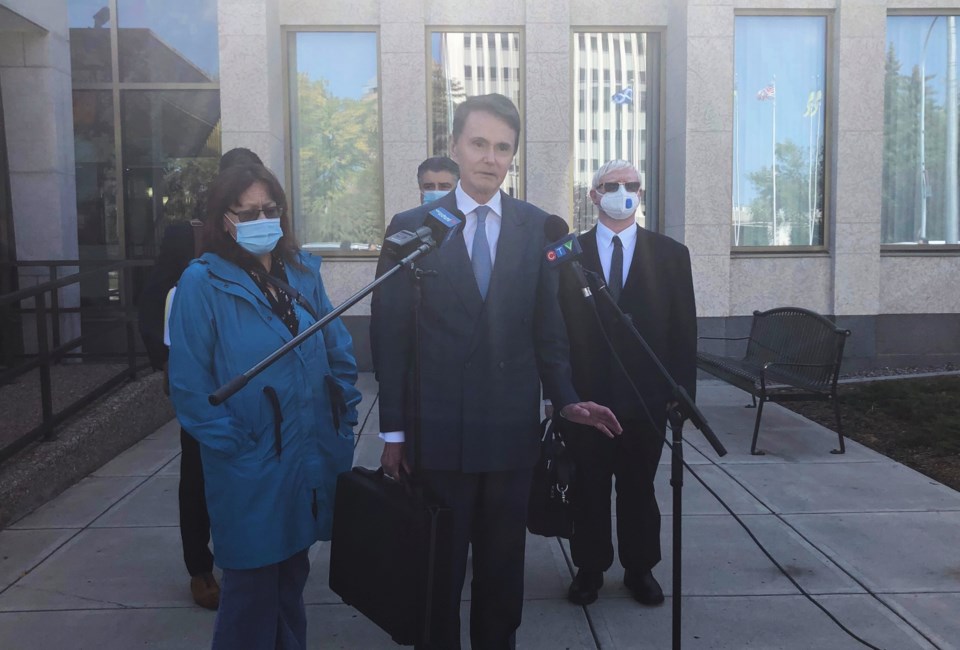On the second day of the certification hearing for a class action lawsuit against the federal government, Regina lawyer Tony Merchant argued that the RCMP was “negligent” in investigating cases Indigenous women and girls who were killed or disappeared in Canada.
The class action claims that the RCMP’s investigations were conducted poorly and caused hardship to families of the victims. Diane BigEagle is the representative for the class suit, which currently includes around 60 families from across Canada and is seeking $600 million in damages.
A judge must certify the case before it can move forward, after deciding whether the case as presented has a chance to succeed or is “hopeless.”
In proceedings on Monday and Tuesday, Merchant argued to presiding Justice Glennys McVeigh in favour of certifying the class action to appear in front of the Supreme Court of Canda, stating that the investigations by RCMP were conducted with systemic negligence and proved a “breach of duty” by the federal law enforcement agency.
Merchant presented details to prove a lack of investigating by RCMP took place, arguing that whenever BigEagle contacted RCMP from information regarding her daughter’s disappearance, she was denied or directed to Regina City Police.
He also said that the prosecution encountered the same problem with witnesses named by the defence, with a failure to produce materials for Merchant and his team.
Presenting other details from other investigations included in the national inquiry into Missing and Murdered Indigenous Women and Girls (MMIWG), Merchant also claimed that RCMP were slow to begin searching for missing Indigenous women and conducted investigations differently due to the victim’s identity as Indigenous.
“We have a whole series of individuals who have sworn affidavits about their personal experience and what happened in their dealings with [RCMP],” said Merchant. “It also focuses on colonialism that has impacted the attitudes of policing in Canada.”
Merchant continued his arguments by stating that a large responsibility of police investigations is to provide closure to the families of victims, adding that families deserve compensation even when cases remain unresolved. He noted that the 2016 national inquiry also called for compensation.
Merchant went on to highlight RCMP programs focusing on missing and murdered Indigenous women in British Columbia, E-Pana, and Manitoba, Project Devote, stating that a failure to expand these programs nationally while knowing they work shows systemic negligence.
In his arguments, Merchant also claimed that Canada’s public acceptance of the MMIWG inquiry’s recommendations was an admittance that wrongful treatment of Indigenous people had occurred and compensation was required.
He also stated that the development of RCMP programs to address the mistreatment of Indigenous populations within policing policies was an admittance of past wrongs.
“You had the prime minister saying, ‘we accept the decision.’ You had the prime minister saying, ‘we recognize this as a genocide.’ You had the inquiry saying the wrongs were national wrongs and contrary to international law, and yet nothing since has changed in policy,” said Merchant to media on Monday. “I find that surprising and want an opportunity to try and remedy that.”
Merchant made clear that the class action suit is not seeking to prove whether the alleged events happened, but to determine the result of what happened and whether it requires compensation for the class.
“The government now should be subject to court orders,” said Merchant. “We hope to be certified and we hope to force the government to do what they lack the responsibility to have done already.”
He also cited past cases that have alleged systemic discrimination has harmed Indigenous people that have been accepted, including settlements over lawsuits pertaining to the Sixties Scoop and residential schools.
The Crown defense will present its arguments before the Justice on Wednesday and Thursday.




